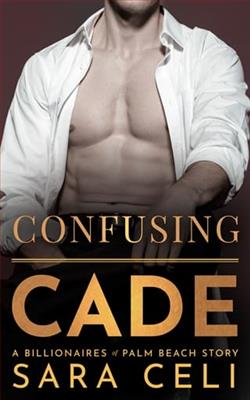Page 83 of Cry Havoc
“That’s right, Director, Europeans call it the Fourth Power. The Americans call it the Fourth Estate; their press as a check on their other three branches of government. Look at this,” Penkovsky said, handing the director a newspaper from the stack.
“What is it?”
“The New York Timesfront page from January thirty-first. A photo of a helicopter in the street and the headline ‘Foe Invades U.S. Embassy Saigon.’ The embassy attack by a small element of sappers was not one of our primary targets. It was almost an afterthought, and even though it was not commandeered and occupied, the press and their photos and videos have made it a symbol of Tet. It was a failed attack, but the imagery plastered over televisions and newspapers make it look like a victory for the North.”
“All perception.”
“This is February first,” Penkovsky said, passing across another edition ofThe New York Times.
“Look at that photo.”
It showed the U.S. Embassy under attack.
“And here is February second.”
The front page showed a photo of a South Vietnamese soldier holding a pistol to the head of a prisoner in the streets of Saigon.
“Who is this?”
“The man holding the gun is General Nguyen Ngoc Loan. He’s the chief of South Vietnam’s national police. He executed the prisoner a moment later. It was caught on film. A man named Eddie Adams with the Associated Press took the photo. He may have turned the tide for us with this picture.”
“This,” Lavrinenko said, “is powerful.”
“If we had infiltrated the press as part of an overall strategy for how toframe Tet in the eyes of the American people, I doubt we would have done as good a job as their media. And the newspapers are nothing compared to the television coverage.”
“What else?”
“Though the North has not achieved their objective—and if these intelligence reports are to be believed, will not achieve them in the days ahead—they have managed to do something more significant: they put a spear in the heart of America. We can take advantage of it. A devastating military defeat for the North can be turned into a psychological victory for us. America’s support for the war has been in a steady decline for years. Casualties have been rising, and they are no closer to victory. The people will lose even more trust in their president and in their military following Tet. The photos of a Vietnam in ruins after all their investment and all the military’s positive press briefings make them all look incompetent. Look at this one,” Penkovsky said.
“What is this?”
“A cartoon, a political cartoon, comparing Westmoreland to Custer. Their press is shaping attitudes. Walter Cronkite is a bit further behind, but even he will mirror the majority of the reporting soon. We are entering a critical phase, Director. The Vietnam War is bleeding America dry.”
“Give me the other side of this perspective.”
“Well, as I said, this is an early analysis, but one report,” Penkovsky said, holding up a file. “This one here, could be problematic.”
“Why?”
“It details a massacre in Hue. The Viet Cong killed twenty-five hundred civilians they termed ‘class enemies.’ If that is picked up by foreign media, it might undercut any political advantage we have.”
“What do you suggest?”
“Luckily it was not Saigon. If it gains traction, it could become a rallying cry for the South. Time will tell, but I believe the press will focus on Saigon and, as the Fourth Estate, they will make their displeasure withtheir government and military known. A massacre in Hue by the Viet Cong runs counter to that narrative.”
“But we don’t know for certain.”
“I am confident that Tet is a critical turning point. It now needs to be managed. Tet will turn more Americans against the war. After the Kennedy assassination and now Tet, trust in their government is at an all-time low. If these headlines are any indication, the press will now exacerbate it.”
“You said that the battle for Hue is still ongoing.”
“Yes, the fighting in the city has been particularly brutal.”
“I was briefed that the Vietnamese in Hue were the most likely to take up arms against the United States once the attacks of Tet began.”
“When that failed to happen, the NVA and VC should have retreated. They continue to fight, but they are facing insurmountable odds. Hue will be destroyed, not by the VC, but by the Americans, further demonstrating to the people of the South that their government cannot protect them. The longer they hold out in Hue, the more fighting the press will have to cover. It extends the life, and therefore the political impact, of Tet.”
“What are our options?”















